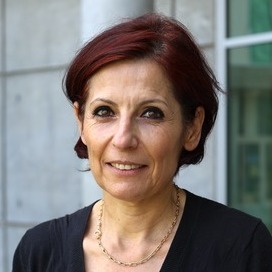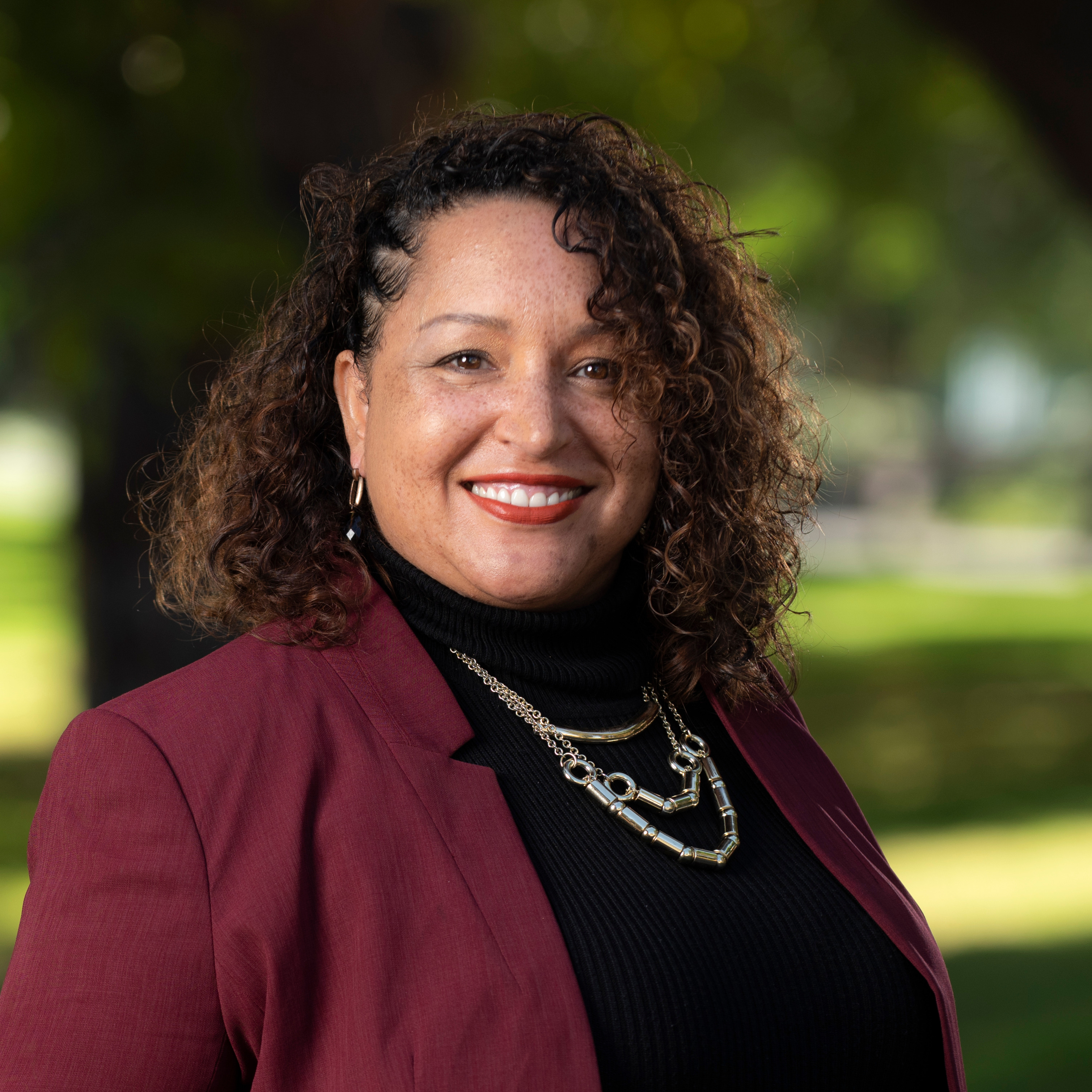Mission Statement
The Dean’s Climate Council is an initiative appointed by the Dean of the UCI School of Humanities and helmed by the Equity Advisor and Special Assistant to the Dean for Equity, Inclusion, and Diversity that addresses inequitable working conditions, epistemological and discursive Othering, and institutionalized violence within the humanities. Council members serve for twelve-month terms, collectively amplifying and supporting both existing and emerging community-engaged research, listening sessions, professional development, partnerships, workshop opportunities, scholarly publications in the field, and similar initiatives. Ultimately, the Climate Council aims to develop a deeper and more robust capacity for transformative change on campus starting with the School of Humanities. Together, we are building the conditions for expanding action-oriented equity, inclusion, and diversity.The goal of the Climate Council is to create a deliberative assembly for representation and action on equity, inclusion, and diversity in the School of Humanities. We are charged with building working capacity, benchmarks, deciding on and about and normalizing and increasing successful and substantive commitments to these values as part of our everyday practices of research, writing, teaching, and professional activities. We seek to highlight and share best practices developed in SoH with partnering campus units and professional associations. We strive to elevate these values and the research and creative activities that advance them by pursuing and securing grants for pathways programs and collaborating on and authoring publications focused on equity, inclusion, and diversity. UC Irvine is federally recognized as a Minority Serving Institution, a Hispanic Serving Institution, an Asian American- and Native American Pacific Islander-Serving Institution. As an institution, we are bound by federal and state laws for advancing equity and diversity for people in numerous protected categories including but not only gender expression, national origin, and disability status. The State of California recognizes the following protected categories, race, color, national origin, religion, sex, gender, gender expression, gender identity, gender transition status, pregnancy, physical or mental disability, medical condition (cancer-related or genetic characteristics), genetic information (including family medical history), ancestry, marital status, age, sexual orientation, citizenship, or service in the uniformed services, including protected veterans.
We are also a First-Generation Serving Institution, a Low-Income Serving Institution, and a campus that aims to become a Black Thriving Institution. The Climate Council has a mandate to plan for a brave present and to build a more courageous future through educating and preparing the next generation. We aim to catalyze, support, and recognize transformative servant leadership, public service, creativity, teaching, and research excellence in higher education by underrepresented minorities, women, gender nonbinary, and trans people in Humanities, in this state, society, and the world. We also aim to support action-oriented and transformative dialogues, policies, and practices, in order to advance more just ways of implementing and advancing equity.
| Member | Biography |
|---|---|
 |
"Who am I? Who wants to know? So few people ask. But I find ways to tell my story anyway. Word of warning: it frequently changes. The story I’m telling now is how I’ve never belonged here. Part of the problem is I’m too gay for some, not gay enough for others. I’m deeply in love with many forms of culture, high and low, but my education is not elite, and so my tastes are suspect. (I’m reminded of this periodically by colleagues; one even insinuated that I had an affinity for “trash.”) But I value what people say about themselves, the stories they tell about their communities, and how they are trying to find survivable lives — high or low. I need to know how to survive, so I need diverse stories in my life (and if you don't, I suspect something is wrong with you, or your privilege is IMMENSE). Storytelling is just the best tool I have for getting to know people and their experience of the world, and for inviting them to know me. So who am I? I am a gay queer bi non-cis formally working-class first-generation college graduate disabled whiteboy feminist who has spent much of his career trying to make other outsiders feel comfortable and safe in a place that has never felt safe for him. I must be crazy. But here I am." - Jonathan Alexander, Chancellor's Professor of English |
 |
Desha Dauchan designs courses for diverse new filmmakers and screenwriters. Many of those courses marry theory, history and practice. She curates reading and screening lists to represent a wide range of voices and perspectives. Her service activities intrinsically address underrepresented communities and advance inclusive excellence. Dauchan’s efforts and support of School of Humanities activities like Activist Studio West and the Black Panther Oakland Community School Research cluster are aimed at increasing the pipeline of underrepresented groups here on campus. On campus and abroad her service as a moderator, contest judge, conference presenter, and festival judge all address the needs of culturally diverse voices the film & media field. As a filmmaker and writer, Desha centers Black, Muslim, Women characters and families thus organically advancing these underrepresented groups' visibility her works. Desha’s ardent hope is that her nuanced approach to storytelling about these subjects and communities contributes to lifting barriers that prevent understanding about them. Dauchan’s engagement with festivals like Blackstar Film Festival and Los Angeles Asian Pacific Film Festival as an invited filmmaker enhances her knowledge of patterns of participation and advancement of underrepresented groups in exhibition and community building opportunities. |
| Tomas Figueroa serves as Assistant Dean of the School of Humanities. With 17 years of experience working in higher education, Tomas has been responsible for program management, personnel recruitment and merit review processes, financial administration, and developing strategy for University resource allocations. His foundation in administrative management, finances, and leadership began with his enlistment in the U.S. Army, where he served as an administrative sergeant and completed his eight year term of service managing financial resources and training for military postal operations. Tomas earned an MBA with a focus in organizational leadership from Brandman University and a BA in Communications from California State University, Fullerton. He is also the co-founder of the Faculty and Staff Veterans Association at UC Irvine.
|
|
| SueJeanne Koh is appointed to the Humanities Center as Graduate Futures Program Director for graduate student professional development and career diversity. Her research focuses on Asian American religions, along with critical university studies
|
|
| Valentina Montero Román is an Assistant Professor of English. Her research and teaching focus on gender, race, and narrative form. She has written articles on topics like maximalism and Latinidad in Valeria Luiselli’s Lost Children Archive, narrative unreliability and anti-Blackness in Nella Larsen’s Passing, and slow futurity and colonialism in Jean Rhys’s stream of consciousness novels. Her work appears or is forthcoming in Genre, Legacy, Modern Fiction Studies, and Studies in the Novel. |
 |
Ghada Mourad "As a lecturer of French, Humanities Core, and Comparative Literature, I am honored to contribute to the vital mission of fostering equity, inclusion, and diversity within the School of Humanities at UC Irvine. With a committed dedication to equitable and inclusive teaching, I thrive to advance transformative change through collaborative pedagogy, innovative practices, and inclusive dialogue. My focus is on supporting initiatives that bridge gaps and elevate voices within our academic community, ensuring that our efforts in research, teaching, and professional development reflect our shared values of justice and representation. As a unionized lecturer, I am dedicated to working alongside colleagues to create a more equitable and inclusive environment for lecturers that ultimately serves all members of our diverse campus community." - Ghada Mourad
|
 |
Jessica Millward is the Associate Director for the Center for Liberation, Anti-Racism and Belonging. One of five campus wide inaugural Inclusive Excellence Term Chairs in Black Thriving, Associate Professor in the Department of History and Core Faculty member of African American Studies, Millward is particularly interested in the intersections of slavery, freedom, power and liberation. Dr. Millward's first book, Finding Charity’s Folk: Enslaved and Free Black women in Maryland was published as part of the Race in the Atlantic World series, Athens: University of Georgia Press (2015). An award-winning scholar, she has published in the Journal of African American History, the Journal of Women’s History, Frontiers, Palimpsest, Nommo, Souls and the Women’s History Review as well as Op-eds in Chronicle of Higher Education, The Feministwire.com and The Conversation.com. Dr. Millward is currently working on two solo authored book length projects. The first discusses African American women's experiences with sexual assault and intimate partner violence from Reconstruction to the Jazz Age. The second books look at historical memory, Ghana, and the trans-Atlantic slave trade. A radical dreamer media savvy historian Millward co-hosts the Historians on Housewives podcast. |
